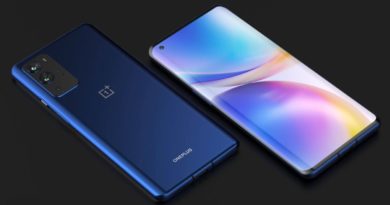T-Mobile and Sprint merger finalized: How it impacts you
It’s finally done. T-Mobile and Sprint have completed a merger first announced in 2018, leaving U.S. smartphone users with just three major carriers.
The $26 billion merger folds Sprint’s network and customers into what the company has called The New T-Mobile, with the newly merged carrier poised to better compete with AT&T and Verizon. At least, that was the argument in favor of the merger, along with promises that a combination of T-Mobile and Sprint would spur 5G development.
That was enough to persuade regulators to bless the merger last year, and T-Mobile cleared the last remaining regulatory hurdles earlier in 2020 when it prevailed in a lawsuit brought by several state attorneys general looking to block the merger.
The impact of the T-Mobile-Sprint merger on customers may not be fully clear for a while. But we do know some policies that will take place immediately as well as some that will evolve over time.
T-Mobile and Sprint merger: Your monthly bill
We’re still waiting to see how Sprint customers will be integrated into T-Mobile. A message on the Sprint website tells current subscribers that they can continue using their smartphone as before without having to worry about a change in rates.
To that end, as part of its effort to win regulatory approval, T-Mobile said that customers could expect the same monthly rate and plan — or better — for the next three years. That should mean the data you get today and the price you pay should be unaffected until April 2023 (unless you switch to a new plan between now and then, of course).
Cheaper plans are already available
T-Mobile has already rolled out a new data plan as part of its merger with Sprint, and it didn’t even wait for the ink on the deal to dry. Back in March, the carrier launched T-Mobile Connect — a $15 prepaid plan that gives you 2GB of data alongside unlimited talk and text. Upping your data allotment to 5GB raises the monthly rate to $25, and T-Mobile to add 500MB to your plan every year for the next five years if you stick with T-Mobile Connect.
That’s already spurred at least one rival to offer a matching deal of its own. Cricket Wireless announced a limited time offer of a 2GB data plan for $15 a month. Speeds are capped at 8 Mbps at Cricket, but if you use up your 2GB, you can continue to use data at slowed-down 128 Kbps speeds. T-Mobile Connect customers who hit their 2GB and 5GB limits are out of data until the next billing cycle.
T-Mobile promises other initiatives
T-Mobile first announced the T-Mobile Connect plan last November alongside some other initiatives that take advantage of its newfound network capacity with Sprint.
For starters, T-Mobile says it will provide free broadband to 10 million low-income households with school-aged children. Eligible homes will be able to get five years of free home service offering 100GB of data per year. The carrier is also planning to make unlimited talk, text and data free for first responders at every public and non-profit state and local police, fire and emergency services agency.
We’d expect more details of those initiatives to emerge now that Sprint is part of T-Mobile.
Dish could soon enter the wireless market
One of the concessions T-Mobile made to win regulatory approval was that it would sell off Sprint’s prepaid business to another company. That essentially means Boost Mobile will soon have a new owner, as Sprint folded its Virgin Mobile subsidiary into Boost earlier this year.
Dish appears to be the lucky recipient of Boost, and it will get to use T-Mobile’s network for a few years while it builds out its own network. After a couple of years waiting for T-Mobile and Sprint to combine, our waiting now shifts over to seeing when and how Dish launches its mobile efforts. At the moment, it looks like nothing has changed for Boost customers.
5G growth should become more clear
Last year, Sprint launched its 5G network in nine cities, and while its speeds weren’t as fast as the millimeter wave-based Verizon 5G network, coverage was more extensive. Apart from adding coverage in Miami as part of this year’s Super Bowl, Sprint’s 5G plans seem to have been in a holding pattern while the T-Mobile merger worked its way through the final regulatory approval process.
Meanwhile T-Mobile has a 5G network of its own with a nationwide reach. That network is built on lower-band spectrum, though, and while the reach is extensive — more than 5,000 cities can access T-Mobile’s 5G network — speeds are only marginally faster than LTE. Adding Sprint’s spectrum figures to improve that, but we’ll need T-Mobile to outline how and when.
There’s a new CEO at T-Mobile
The outspoken John Legere is out now that Sprint is folded into T-Mobile. Mike Sievert, formerly T-Mobile’s chief operating officer, takes over as CEO of the combined company.
This next part is bitter-sweet. I’ve been fortunate enough to lead this company & the amazing people who are part of it for 7+ years. But, it’s time to hand the reigns over to @MikeSievert so that he can lead the new company as CEO from day 1. #NewTMobileApril 1, 2020
That move doesn’t figure to impact customers in any meaningful way, though there will likely be fewer swear words in future T-Mobile announcements.

